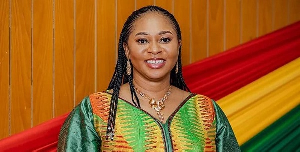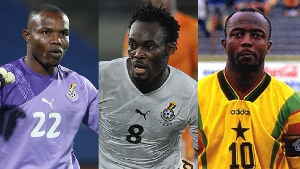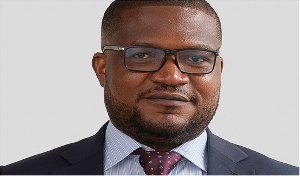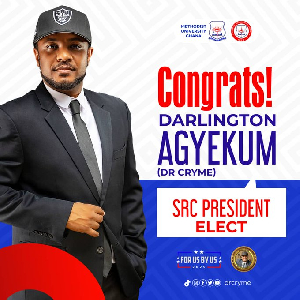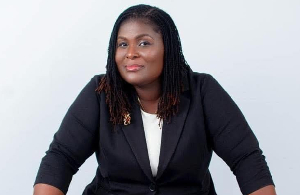Clearly, scholars as well as well-informed lay proponents of sociology of knowledge, Afrocentric theory, and relativism have long discredited or disallowed intromission of cultural and epistemological universals into their systematized enterprise of scientific hypothesizing and theorizing. However we may want to put it, even Eurocentrism vigorously rejects any formalized epistemological imputation to relativism except, perhaps, its self-promotional investiture in the emotional realm of carefully-crafted perspectival, if universalist, exclusivism, sort of taking a steep psychocultural dive into an ideological ocean of epistemological and cultural universalism. Importantly, Eurocentrism mischievously ingratiates itself into human consciousness as though it represents an ideological heliocentrism of collective human wisdom as well as the pinnacle of cultural and intellectual excellence. In fact, the analytic weight of historical facts doesn’t always angle these self-serving epistemological attributes toward the cultural West.
Quite often, as is the case with white supremacy, Eurocentrism, on the other hand, essentially embraces positivism, if we may arguably put it at that, while, on the other hand, keeps intuitive and introspective knowledge at investigational arm’s length. Yet these forms of knowledge may assume the same cultural plinth of intellectual affirmation as the evidence of empiricism and rationalism. Alternatively, we hold the opinion that, in theory, intuitive and introspective knowledge, strictly evaluated from an African perspective, does not, of necessity, subscribe to the imperial majesty of Eurocentric scientism. Meanwhile, the epistemological heuristics we are wont to employ here affords us an explanatory vista across the ideological lane dividers sandwiched between Eurocentrism and Afrocentricity, and, by extrapolation, finds a locational contrast in two major works, Dr. Molefi Kete Asante’s “The Afrocentric Idea” and Dr. Antonio Damasio’s “Looking for Spinoza: Joy, Sorrow, and the Feeling Brain.”
The former, Dr. Asante, seeks an ontological understanding of the layered constitution of humanity, material and nonmaterial, especially the latter, an analytic task evaluated purely from an African perspective, Afrocentricity, that is, while, the latter, Dr. Damasio, explores similar questions through the scientific method. Evidently, the scientific approach, it turns out, is not demonstrably evaluatively superior to the ontological or phenomenological approach utilized by Dr. Asante. Seemingly, part of Dr. Damasio’s aggregate attempts to elevate the analytic forehead of the scientific method via meticulous biological resolution of the mind-body conundrum, a philosophical question whose evaluation captured the minds of Rene Descartes and Baruch Spinoza, found themselves in the fog of unproven conjectures and high-flown speculations. That is, there is so much about human spiritually, human psychology, and human personality science simply does not understand, let alone explain, if adequately.
Therefore, let’s not deceive ourselves into swallowing the universalist claims of Eurocentrism that, among other misguided proposition, the scientific method is necessarily superior to intuitive and introspective knowledge in every single evaluative circumstance. Creationism and evolution are two other good examples. Creationists generally claim science confirms creationist propositions. Interestingly, creationists also say scientific investigations offer sufficient evidential affirmation of God’s existential ontology though they are yet to tell us who this God actually is, whether he is the Yahweh of Judaism, the Jesus of Christianity, or the Allah of Islam. Evolutionists, on the contrary, claim evolution is the institution of science itself though much of what the Afro-Arab scientist and writer Al-Jahiz, an intellectual precursor of Charles Darwin and Alfred Russel Wallace, said about biological diversity merely derived from conjectural gropings based on perceived, if nuanced, phenotypic variances in the architectural anatomy of animals.
Then again, another controversy brewing between creationists and evolutionists over whether the presence of chromosome 2 backs up creationism or evolutionism demonstrates the fluidized applicability and political insincerity of science. The debate, however, continues unabated. What do all these mean? They mean science is not necessarily all about critical thinking. They also mean scientific or empirical evidence may be doctored, invented, or transformed to conform to the wooden ideology of institutional or personal idiosyncrasies. In that context, we shall argue that science, again, is not necessarily a negation of spirituality. Further, there is no analytic connotation here saying the African world should not vigorously, if simultaneously, pursue STEM (science, technology, engineering, and mathematics). We need not exclude a responsible push for progressive industrialization and computerization of the African world.
But industrialization is not without its shortcomings. Namely, among other problems, industrialization kills or tames spirituality, deities, and religions; sends animals to the graveyards of extinction; pollutes the environment; and breeds corruption, scientific racism, and organized crime. Besides, computerization is no different: Pornography, identity theft, industrial espionage, illegal data mining, etc., constitute a few serious problems we may associate with the illegal use of computers. Ideally, we need to clearly define our national priorities so as to put us in a better strategic position to strike a critical balance hovering over questions of moral propriety between “want” and “need.” Making better, responsible, effective, advantageous, or cost-effective choices in life, be it community, personal, or national, is part of the intellectual technology of critical thinking.
Let’s push ahead. Curiously, though, Asian communities, for instance, place more intellectual and investigational premium on science, engineering, and mathematics than on the arts. That is to say, science, engineering, and mathematics have catapulted India, China, South Korea, Japan, to name but four, to economic and industrial heights of power, not through the totality of medals received at Olympic games. These countries have taken decades to accomplish what the West took centuries to accomplish, lifting hundreds of millions of their citizens out of the rusty borehole of deadening privation. Yet not every student can be a mathematician, scientist, or engineer. Some have to be custodial workers, dancers, rappers, babysitters, instrumentalists, traders, maintenance personnel, singers, writers, secretaries, fishermen, laborers, machiners, plumbers, evangelists, farmers, messengers, sports men and women, priests, carpenters, cooks, welders, fitters, and what have you.
However, it does not imply individuals should get bogged down in these occupations if creative opportunities for occupational improvement or scholarly advancement present themselves. Still, it does not mean that because society generally looks down on these occupations they do not entail critical thinking, far from it. They evidently do, in fact. In effect, that ill-informed subpart of society which refuses to countenance these occupations lacks the evaluative accoutrements of critical thinking itself. In fact, the educational models designed by Molefi Kete Asante and Howard Gardner have connotatively made this claim abundantly clear. Accordingly, this is to gainsay theoretical and practical advocation for gullible acceptation of Asian or Western educational models because they have worked for them, an idea we wish to reinforce following the contextual contours of the foregoing arguments.
Let the African world learn to spy on the womanhood of the world voyeuristically via an Afrocentric telescope of cultural and philosophical self-appraisal. Put another way, the African world needs to pray to her gods, ancestors, and God for rain, let’s call it African investigational gnosis, just as she needs to explore practical scientific solutions to problems such as planting trees to counter desertification, to make responsible decisions to minimize ozone depletion, etc. This was exactly how Africa went about unraveling scientific, cultural, and social puzzles in ancient Egypt and elsewhere in the ancient African world, where, in principle, Africans kept science, religion, and critical thinking tied to the Trinitarian chalice of human creativity. Nevertheless, we are not asking the ancient Egyptian model to be replicated in its formalized entirety.
We need to organize community, national, and international conferences centered around this question of epistemological operationalizability if we decide to make progressive elements of the African past part of African “modernity.” Thus, Africa was able to create one of the world’s greatest and most powerful civilizations (and several others) without going through the cultural porte-cochere of foreign providence. In other words, providential autochthony was integral to ancient Africa’s civilizational success. But five hundred years of Africa’s cultural intercourse with Islam and Christianity (Eurocentrism) reversed her intellectual progressivity. What is more, Dr. Chandra Kant Raju, one of the world’s prominent mathematicians, computer scientists, and historians, has shown how religious dogmatism, specifically Christianity, exercised through the dictatorial politics of the Catholic Church, adulterated the “purity” of mathematics, thereby making its study an unnecessarily cumbersome process for the human mind (See his book “Euclid and Jesus” and essay “Towards Equity in Mathematics Education: Good-Bye Euclid”).
That said, let’s reiterate here that some of our readers misconstrued some of the positions we took in the prequel. There is no contradiction between an epistemological question of Western civilization having foundationally fed upon primordial African thought through the cultural prism of ancient Egypt, mainly, and philosophical questions based on particularized advocation for Afrocentric epistemology separate from the dogmatic universalism of Eurocentrism. It’s a historiographic given that Western appropriation of ancient African and Asian ideas somehow, if obviously, led to their partial adulteration given the cultural and geographical particularity of the European, that is, primarily Greek and Roman, mindset, a position which makes more sense if construed from the standpoint of sociology of knowledge.
In other words, distortive perceptions of epistemological contradiction between the intellectual primordiality of ancient Africa and Western pilferage of African and Asian ideas derive from a lack of analytic appreciation of the history of science, the history of scholarship, the history of philosophy, and the history of knowledge. In other words, what these facts mean, and by implication via Dr. Chandra Kant Raju’s historical analysis, is that Western injection of religious dogmatism into Western-appropriated ideas of ancient Africa and Asia led to the obnubilation of their African and Asian origins. The fact is also that the products of these intellectual mongrelizations have come to haunt the non-Western world, particularly Africa and Asia. Eurocentrism is part of this conscious stream of intellectual mongrelization. Theoretically, not every aspect of African or Asian ideas which ancient Europe appropriated and then made her own can actually be said to be good or positive for Africa or Asia in today.
In consequence, several scholars and researchers from around the world have attempted to unravel the reasons behind the artificial transmutation of those primordial ideas which the West appropriated and essentially used to build its societies, to the extent that they bore an assumed stamp of cultural and philosophical unlikeness to their African and Asian originality, their applications, and their conceptual formulations. In fact, some of the world’s most outstanding scholars, historians, and researchers, including Martin Bernal, Herodotus, Ama Mazama, Ivan Van Sertima, Maulana Karenga, Gerald Massey, Molefi Kete Asante, Theophile Obenga, Marimba Ani, Cheikh Anta Diop, Gaston Maspero, Richard Poe, WEB Du Bois, Basil Davidson, FC Volney, Diodorus Siculus, Aeschylus, Strabo, Lucian, Appollodorus, and Simson Najovits have all added their authoritative voices to the investigational enterprise of uncovering the African roots of Western civilization.
It’s also why Wole Soyinka has decried Eurocentrism as an institutional methodology, technically implying that it’s incapable of breastfeeding the world. It’s also why the White-American Prof. James W. Loewen, an author, historian, and sociologist, has exposed the metastasis of Eurocentric lies in the American educational system (See his books “Lies My Teacher Told Me About Christopher Columbus,” “Lies My Teacher Told Me: Everything Your High School History Textbook Got Wrong,” “Lies Across America: What Our Historic Markers and Monuments Get Wrong,” and “Teaching What Really Happened”). Finally, it’s also why scholars, scientists, educationists, philosophers, policy makers, and researchers who attended the “Decolonizing Our Universities” international conference, held in Malaysia, 2011, agreed to do something serious about Eurocentric education in the Americas, Africa, and Asia.
To the question of critical thinking again: We have to add Cheikh Anta Diop (See “African Origin of Civilization,” “Civilization or Barbarism,” “Black Africa: The Economic and Cultural Basis for a Federated State,” “Pre-colonial Black Africa,” and “The Cultural Unity of Black Africa”) and Ama Mazama (See her edited volume “The Afrocentric Paradigm” and “Africa in the 21st Century”) to the list of influential intellectuals who have probably exerted the greatest impact on scholarly thinking about the African world, framing the cultural imperative of critical thinking along the creative lines of Africa’s development and growth better than most authorities on the African world. Also, we need to include Henry Louis Gates, Jr.’s and Nellie Y. McKay’s “The Norton Anthology of African American Literature” in our literature.
In the meanwhile, it’s also important to note, once again, that in our sweeping literarized collectivization of reading lists we provided a somewhat limited juxtaposition of corpus of literary works spanning ideological geographies, cultures, multiple perspectives on textuality, literary techniques, subject matter, etc. Let’s, however, reinforce this caveat here, again, as we did in the prequel, that the ideational ink of the likes of Shakespeare, Leo Tolstoy, Emily and Charlotte Bronte, Lao Tsu, George Eliot (“Mary Ann”), Charles Dickens, Jane Austen, Khalil Gibran, Jonathan Swift, George Bernard Shaw, William Wordsworth, and the like, remain far removed from the internal reservoir of active problems plaguing the African world. Granted, this is not to say their literary works are not crucial to the evolution of human psychology, psychological socialization, or spatial romanticization between author and reader, far from it.
It’s merely to stress a dearth, possibly, of material and spiritual relevancy, at least, from the perspectival exclusivism of their creative corpus of works, which, to say the least, fall outside the immediate contextual remediation of African problems. Put another way, we are simply saying that, for instance, the Ghanaian Efua Dorkenoo, an international activist and expert on “female genital mutilation,” understands the cultural, spiritual, and political dynamics of “female genital mutilation” than the Bronte sisters, Jane Austen, and Mary Ann. We are also saying that Franz Fanon, Kwame Nkrumah, Marcus Garvey, or Nelson Mandela understood the cultural dynamics of Afrocentric decolonization of the African mind than did Rudyard Kipling, a Toryish imperialist and colonialist. Yet again, Ama Ata Aidoo, Toni Morison, Abena Busia, and Akua Dorkenoo understand modern-day gender inequality, “Witch Camps,” “trokosi,” “ritual infanticide,” and “breast ironing” better than the Bronte sisters, Jane Austen, and Mary Ann.
Didn’t Wangari Maathai understand environment issues better than the Bronte sisters, Jane Austen, and Mary Ann? What can Shakespeare or Jonathan Swift possibly tell us about Boko Haram, Al-Shabab, collusion between murderous political thieves and corrupt Swiss and American banking officials, contemporary African desertification, and dumping of toxic waste in Africa by the West? What can the Elizabethan and Victorian cultural dispensations possibly tell us about eliminating “female genital mutilation,” “breast ironing,” or “trokosi”? Aren’t Ama Mazama, Wole Soyinka, Ngugi wa Thiong’o, Chinua Achebe, Cheikh Anta Diop, Molefi Kete Asante, Yaw Nyarko, to name a few, better at defining the epidemiology of problems of the African world as well as of offering reliably effective prognosis for these problems than Shakespeare or Charles Dickens?
What are we saying? We are saying that there is a need to strike a critical balance between foreign literature and African literature, focusing more on African literature, relatively speaking, because, more or less, African literature has immediate social, moral, economic, and political relevance to problems of the African world. This is another challenge the new education should tackle. Again, we have come to another important junction of analysis, that of critical thinking. Critical thinking means rejecting unprogressive orthodoxies, whether they are of Africa or imported into Africa. For instance, the Ugandan Rev. Canon Gideon Byamugisha, an HIV-infected Anglican priest, has called for the removal of unprogressive European laws which threaten to tear Uganda apart, despite the fact that, again, according to him, progressive pre-colonial laws guaranteed relative existential harmonization among diverse ethnic groups now roughly occupying the political geography of modern-day Uganda, from law books.
On the other hand, Dr. Shadrack Gutto, a South-African jurist and fellow of the Molefi Kete Asante Institute for Afrocentric Studies, has strongly argued against retention of dinosaurian Roman-era laws still luxuriating on South African law books in the age “modernity.” Particularly, we argue that breaking the cycle of uncritical thinking is the greatest challenge the new education must tackle head-on in the African world. Who should we look up to for transformative inspiration, Mary Lefkowitz, Friedrich Hegel, Kwame Anthony Appiah, or Arthur M. Schlesinger? “It would have been better, but it would also have been intolerable, for Harlem had needed something to smash. To smash something is the ghetto’s chronic need. Most of the time it is members of the ghetto who smash each other, and themselves. But as long as the ghetto walls are standing there will always come a moment when these outlets do not work,” James Baldwin wrote in “Notes of a Native Son.”
Here, could we appropriate Baldwin’s observations for our analytic situation? Yes, we believe we could! Shouldn’t the African world smash “ghetto walls” into inane ideological smithereens? Questions: Wouldn’t it have been better if Harlem had smashed the carapace of uncritical thinking, otherwise referred to as “ghetto walls” in our situation? Further, replacing “ghetto walls” with Eurocentrism, we may argue that critical thinking, that is, Afrocentric self-expression, is possible within the concrete intellectual walls of the African world even in the Frankensteinian face of Eurocentric onslaught. Let’s therefore be inferentially grateful to Baldwin for his moral assurances that uncritical thinking has no place in Afrocentric theorizing and thinking. Yes, though they may stand as firm and formidable as the Walls of Jericho, the Great Wall of China, the Walls of Great Zimbabwe, the Great Pyramid, or Sungbo’s Eredo, the “ghetto walls” must go, that is, must be analytically crushed under the soldierly boots of Afrocentricity without reservations.
Need we say more? “We need to retool our values to a certain extent,” said Randall Robinson, founder of TransAfrica, in a C-SPAN interview, adding: “And balance them, overbalance them toward entrepreneurship…We need to know that there is little that can be done without money. We have to be in a position to endow our own efforts…We don’t own any news broadcast organs that are major organs and, so we are still depending on other people in their newsrooms, where decisions are made often by groups of people that don’t include any of us, to make decisions to tell stories which will favor us about our situation, about our history, about our journey, that won’t happen until we are in a position to make that happen…” Most of those who exclude us from important decision making in the world are generally Eurocentrists. This is exactly what dislocated and grossly mis-informed opponents of Afrocentricity don’t understand.
In fact, Eurocentrism does not accommodate African people, continental and diasporic, in any major decision-making processes in the world. Probably Ralph Ellison’s “Invisible Man” pointedly exemplifies Eurocentrism’s calculated rejection, inferiorization, or peripherization of the African, his history, his personality, and his worldview better than misinformed detractors of Afrocentric Pan-Africanism. In the end Robinson further explained that because black people don’t own any of these major media networks mainstream American media, mostly American television, portray black people in a negative light rather than focus on the creative contributions black scientists, engineers, mathematicians, doctors, technologists, etc., are making to the world. “It’s always better to own a basketball team than play for one,” Robinson says.
We shall return…
Opinions of Wednesday, 5 February 2014
Columnist: Kwarteng, Francis


